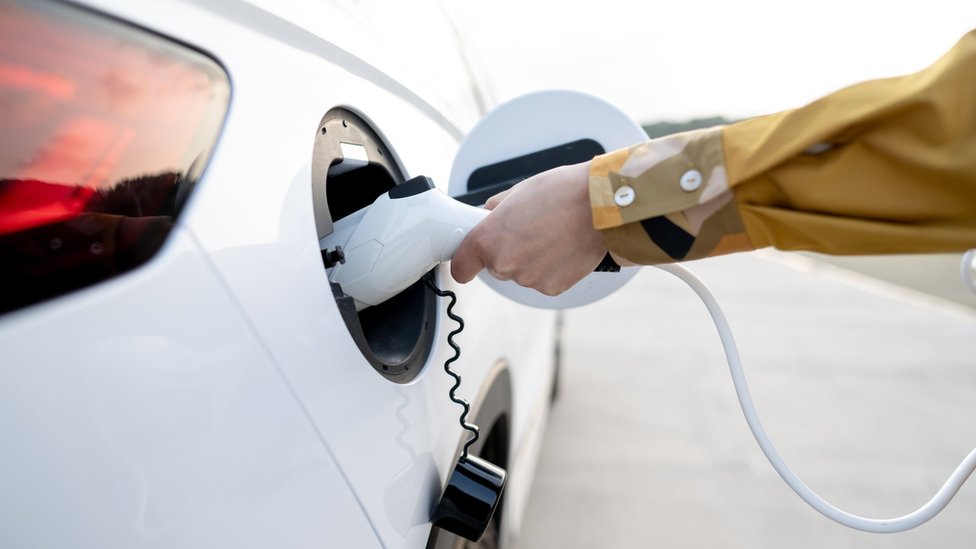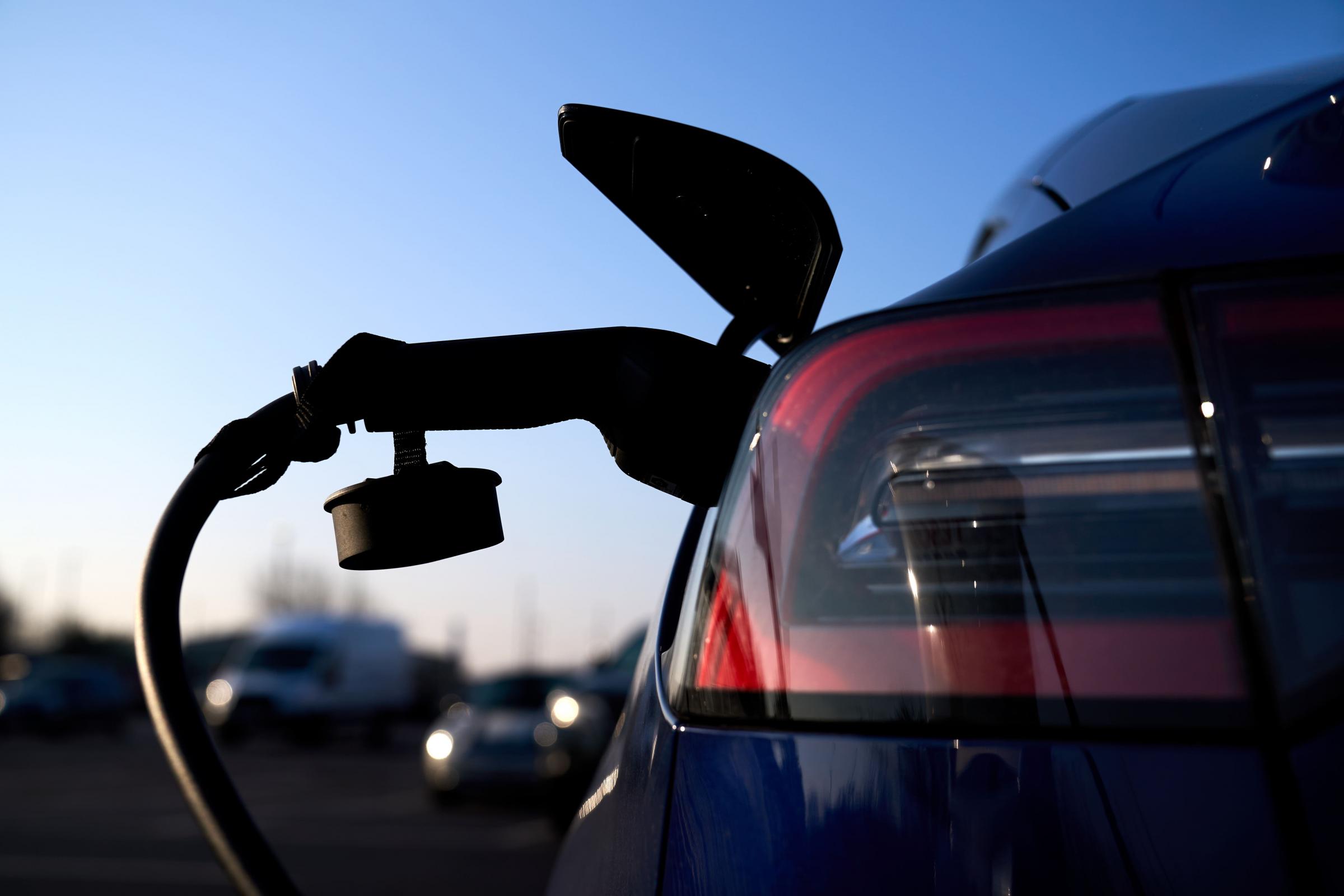Last month marked the entry of one million Electric cars onto the roadways of the United Kingdom, according to official industry data.
According to the Society of Motor Manufacturers and Traders, this “major milestone” was accomplished in January, when Electric car sales in Britain reached an all-time high of 1,001,677 units by the month’s end.
It comes at a critical juncture for the industry, as consumer demand for Electric car (EVs) has significantly slowed, with only one in every eleven private purchasers opting for a battery-powered vehicle in the previous year.
The decrease in driver enthusiasm for Electric car (EVs) has been partially obscured by substantial fleet registrations, which can be attributed to the 2% company car tax rate and the availability of salary sacrifice programmes through employers.
Additionally, the conversion of company fleets to EVs has contributed to an increase in registrations.
However, according to industry data, only 8.8% of private purchasers opted for an electric vehicle in 2023, with unleaded being the most popular fuel type among motorists for new vehicles.
In 2023, individuals purchased 71,984 electric vehicles, representing 23% of the 314,687 private purchases made in 2018. But in 2022, they spent 33 percent of the total on 88,910 electric vehicles (EVs).
Conversely, enterprise purchases of electric vehicles increased from 178,294 in 2022 to 242,703 last year.
The situation is also comparable in the initial month of 2024.
According to data released by the SMMT this morning, the number of electric vehicles registered in January increased by 21% year-over-year to 20,935 units.
Conversely, private consumer purchases decreased by a quarter, or 25.1%.
Former trade organisation CEO Mike Hawes stated that motorist demand for electric vehicles (EVs) in the United Kingdom was “likely in the lower half of Europe,” lagging behind countries including France, Germany, Ireland, and Portugal.
This, he said, was due to the absence of incentives in the United Kingdom.
The SMMT nevertheless anticipates that pure battery electrics will comprise over one-fifth of newly registered vehicles this year.
The implementation of the Zero Emission Vehicle (ZEV) mandate has facilitated this, as described by Hawes as the “single most important mechanism to deliver the United Kingdom’s net zero commitment.”
The mandate, which went into effect last month, requires “mainstream” automakers (those that produce over 1,000 vehicles annually) to sell a growing proportion of zero-emission models annually.
The mandate is that by 2024, 22% of their total sales must consist of electric vehicles.
The threshold is projected to increase to 28% in 2025, and further to 33% the following year.
By 2028, more than half (52 percent) of all sales in Britain must be electric vehicles (EVs), increasing to eighty percent by the end of the decade and continuing to increase annually until 2035, when the government will outright prohibit the sale of new petrol and diesel cars and vans.
Manufacturers that fail to meet these targets will incur sanctions of £15,000 per model below the threshold. However, they can circumvent this penalty by purchasing ZEV credits from manufacturers that have already surpassed the requirement, such as Tesla and Polestar.
According to data released this morning, Electric car (EVs) comprise a mere 14.7% of the total, which is nearly 8 percentage points less than the 2024 ZEV mandate threshold.
The trade association asserts that the persistent decline in consumer demand for electric vehicles will impede the United Kingdom’s progress towards achieving net-zero emissions.
A day prior to Tuesday’s release of its most recent EV strategy report by the Environment and Climate Change Committee, which will detail how ministers must intervene to increase demand for electric vehicles, the advisory was issued.
Hawes stated, “It took us just over two decades to reach one million electric vehicles, but with the right policies, we can double that success in the next two.”
At present, the expansion of the market is reliant on enterprises and fleets.
Therefore, the government must use the upcoming budget to assist private EV purchasers by temporarily halving VAT to reduce carbon emissions, stimulate economic development, and facilitate the transition for all. Manufacturers have been requested to provide the vehicles; at this time, we are requesting that the government assist consumers in purchasing the vehicles that are vital to achieving net zero.
Ian Plummer, commercial director at Auto Trader, hailed the millionth electric vehicle’s arrival as “a true market milestone” but advocated for additional demand-driving incentives.
He stated, “Given the pressure on automakers to meet a 22 percent sales target for electric vehicles this year in accordance with the ZEV mandate, now is a good time to purchase an electric vehicle, with some manufacturers offering as much as a 40 percent discount on EVs.”
Although electric vehicles may comprise a mere one-fifth of sales this year, ministers still have the ability to accomplish more.
Comparing the value-added tax (VAT) on public and private charging stations would increase operational cost savings and promote greater adoption of electric vehicles.
Akio Toyoda, chairman of Toyota, stated a month ago that electric vehicles will never dominate the auto industry.
According to the CEO of the second largest automaker in the world, battery-powered vehicles will never account for more than 30 percent of the global market. The remaining 70 percent will be comprised of conventional internal combustion engine vehicles, hybrids, and hydrogen fuel cell vehicles.
Nevertheless, his remark was made subsequent to the confirmation that Tesla’s Model Y would be the best-selling new vehicle in Europe in 2023.
Auto Sales Surge and EV Charging Boost
According to industry data for January released by the SMMT on Monday, the overall quantity of newly registered automobiles increased by 8.2% compared to January 2023.
January exhibited a monthly sales volume of 142,876 units, reflecting growth of 10,882 units compared to January 2023. This marks the month’s highest performance since 2020 and the eighteenth consecutive month of expansion.
With 4,239 registrations in January, the Kia Sportage was the best-selling model, just surpassing the Ford Puma, which was the most popular vehicle of the previous year.
This morning, the government announced the eligibility of English schools to apply for grants in order to acquire and install electric vehicle outlets on their facilities.
Educational institutions receiving state funding, including schools, will be eligible to receive a grant covering up to 75% of the expenses related to the installation of chargers. The maximum amount of funding per device is £2,500.
The chargers would be accessible to both staff and visitors. However, officials from the Department for Transport stated that by making the chargers available to the general public, the scheme could also help schools generate revenue.





